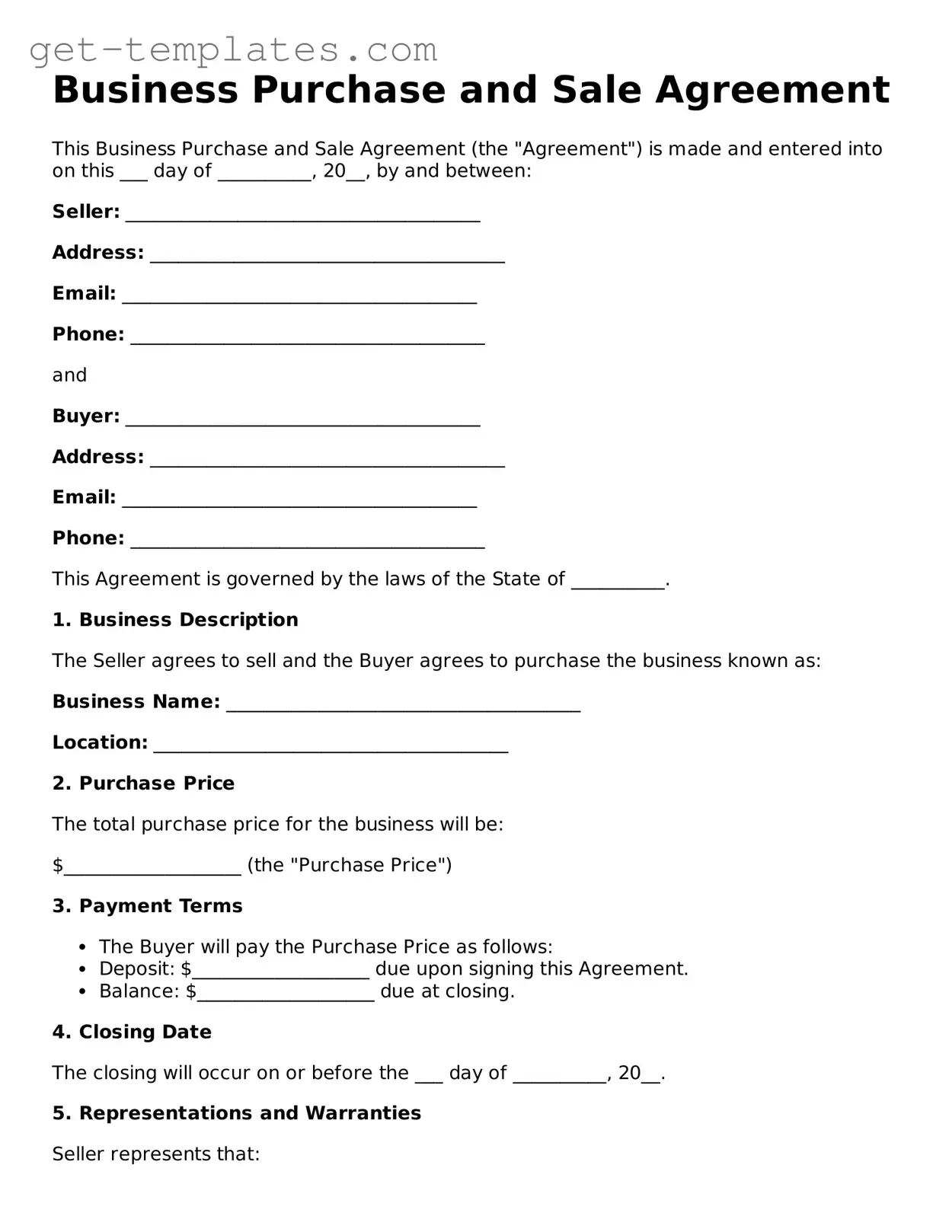Attorney-Approved Business Purchase and Sale Agreement Form
A Business Purchase and Sale Agreement is a legal document that outlines the terms and conditions under which a business is bought or sold. This agreement serves as a crucial framework for both parties, ensuring clarity and mutual understanding throughout the transaction. By detailing essential aspects such as purchase price, payment terms, and asset allocation, the agreement helps facilitate a smooth transfer of ownership.
Get Document Online

Attorney-Approved Business Purchase and Sale Agreement Form
Get Document Online
You’re halfway through — finish the form
Finish Business Purchase and Sale Agreement online — edit, save, download made easy.
Get Document Online
or
⇓ PDF Form
